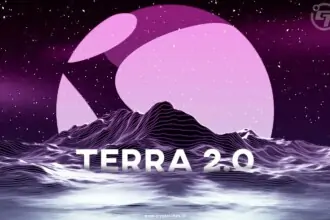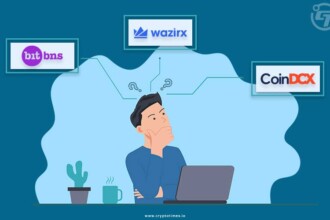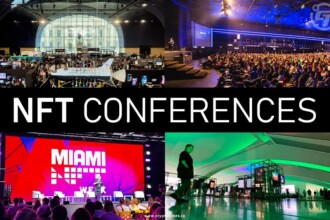Blockchain is a distributed ledger technology that allows secure data sharing. It is a decentralised digital database which enables trust, transparency and immutability of stored data. This technology has transformed several sectors with the help of its decentralised feature and secure transactions. At the centre of this revolution are smart contracts, which are self-executing agreements with terms incorporated directly in code.
These contracts automate operations, minimise the need of intermediaries, and increase transparency. Smart contract platforms serve as the base for deploying these contracts, with each offering its own set of features and capabilities.
In this article, we will look into the top smart contracts blockchain for 2025.
What are Smart Contracts?
Smart contracts are digital agreements that automatically execute predefined actions when specific conditions are met. They operate on a blockchain network, ensuring that once conditions are satisfied, the contract applies the agreed terms without requiring human intervention. This automation minimises error, reduces cost, and increases efficiency across various applications.
A smart contract platform is a blockchain-based environment that facilitates the creation, deployment, and management of smart contracts. These platforms provide necessary tools and frameworks for developers to build decentralised applications (dApps) that leverage smart contracts, enabling a wide range of functionalities from financial services to supply chain management.
Which are the Top Smart Contracts Blockchains in 2025?
Ethereum

The first smart contract platform Ethereum was introduced in 2015 and continues to remain the most popular blockchain for decentralised apps (dApps). Through its Ethereum Virtual Machine (EVM), Ethereum- powered by its native cryptocurrency Ether (ETH), introduced smart contracts, allowing programmers to create agreements. Numerous dApps, non-fungible tokens (NFTs), and decentralised finance (DeFi) platforms are part of its strong ecosystem.
Ethereum’s shift from Proof-of-Work (PoW) to Proof of Stake (PoS) consensus method in Ethereum 2.0 has solved issues with scalability and energy efficiency. Ethereum is the most popular option for developers, which showcases its dominance in the blockchain market even as Layer 2 alternatives like Optimism and Arbitrum gain acceptance.
BNB Chain (Formerly known as BSC)

Since its 2020 launch, BNB Chain (BSC) has become famous as an Ethereum substitute. Formerly known as Binance Smart Chain, BNB Chain hosts several DeFi applications and NFTs, which benefits in quick processing and minimal transaction fees. Because BNB Chain is compatible with Ethereum’s EVM, dApps built on Ethereum can migrate with ease.
The platform has developed as a lucrative choice for decentralised exchanges (DEXs), gaming platforms, and cutting-edge DeFi initiatives thanks to its emphasis on scalability and cost.
Solana

Solana has gained recognition for its unmatched speed and scalability, processing up to 65,000 transactions per second. It achieves this through its unique Proof of History (PoH) consensus mechanism, which timestamps transactions before processing, reducing validation time. This makes Solana ideal for high-frequency applications such as trading and gaming.
The Solana ecosystem is growing rapidly, with projects spanning DeFi, NFTs, and decentralised gaming. Its low fees and energy efficiency make it a strong contender for developers seeking performance-driven blockchain solutions.
Cardano

Cardano is a blockchain platform that prioritises sustainability, scalability, and security through research. Maintaining a decentralised system, energy-efficient transaction validation is guaranteed by its Ouroboros PoS consensus process. Building and implementing smart contracts is made flexible by the platform’s layered architecture, which divides the settlement layer from the computation layer.
Cardano provides a safe and dependable environment for creating decentralised apps, with emphasis on research and peer-reviewed updates. Its position in the blockchain sector is cemented by its expanding ecosystem, which consists of identity management platforms, supply chain solutions, and DeFi projects.
Polkadot

Polkadot stands out for its ability to connect multiple blockchains into a unified network. Its interoperability allows different blockchains (parachains) to share information and assets seamlessly, fostering collaboration among projects. This design is ideal for developers looking to build specialised chains tailored to specific use cases.
Polkadot’s governance model enables stakeholders to vote on network upgrades, ensuring a decentralised approach to decision-making. Its ability to support multiple parallel chains makes it highly scalable, positioning Polkadot as a key player in the blockchain ecosystem.
Avalanche

Avalanche’s ecosystem supports unique blockchain networks and is built for scalability and interoperability. Because of its consensus mechanism, which guarantees nearly immediate decisions decisiveness, developers can produce dApps that serve sectors like gaming and banking that demand quick transactions.
Because of Avalanche’s adaptability, developers can create innovative virtual machines and create solutions that are customised as per their needs. Its adoption throughout the blockchain world has increased because of its compatibility with Ethereum dApps and tools that promise a smooth migration process.
Tezos

Tezos is a self-correcting blockchain that permits protocol updates via on-chain governance, preventing hard splits. Because of its ability to provide network flexibility and stability, Tezos is a long-term option for dApp development. Its energy-efficient PoS technique makes it even more appealing to developers who are concerned about environmental issues.
The platform supports enterprise-grade solutions, DeFi apps, and NFTs. Its collaborative governance model encourages a community-driven approach to blockchain advancement by giving stakeholders the ability to influence protocol decisions.
Algorand

Algorand is a high-performance blockchain focusing on security, scalability, and decentralisation. Its Pure Proof-of-Stake (PPos) consensus mechanism safeguards rapid transaction validation while maintaining low fees, making it suitable for global-scale applications.
With its emphasis on enterprise adoption, Algorand supports a variety of use cases, including supply chain management, cross-border payments, and digital currencies. Its robust infrastructure and scalability solutions make it a leading choice for businesses and developers.
EOS

EOS has been created to give developers of scalable dApps, an easy-to-use environment. It is perfect for applications requiring high throughput because of its Delegated Proof-of-Stake (DPoS) consensus mechanism. This guarantees effective transaction processing. EOS prioritises usability by providing resources and tools that make development of dApps easier.
EOS has emerged as a popular platform for enterprise-level apps, gaming projects, and social media dApps due to its strong emphasis on scalability and flexibility. Its ecosystem keeps expanding, drawing developers from other sectors.
Hyperledger Fabric

The Linux Foundation created Hyperledger Fabric, a permissioned blockchain technology designed for business use. Businesses can create unique applications with an emphasis on security, scalability, and secrecy thanks to its modular architecture.
Hyperledger Fabric, unlike public blockchains, offers controlled access. This makes it perfect for sectors like finance, supply chain, and healthcare. It is a preferred platform for businesses looking for blockchain solutions because of its adaptability and strong governance approach.
Conclusion
Smart contracts have transformed the way industries operate with its advanced features offering secure, scalable, and decentralised solutions. Platforms like Ethereum, Binance Smart Chain, and Solana continue to lead in carrying out innovations, while others like Polkadot and Avalanche provide unique capabilities tailored solutions for specific use cases.
As blockchain technology evolves, these platforms are poised to play a crucial role in shaping decentralised finance, making 2025 an exciting year for smart contracts’ development. Whether it’s for DeFi, gaming, or enterprise solutions, these blockchains provide all the necessary tools and techniques for global adoption.







